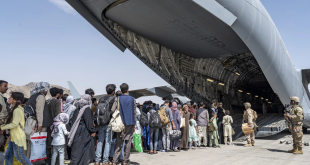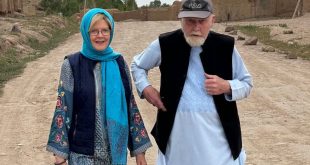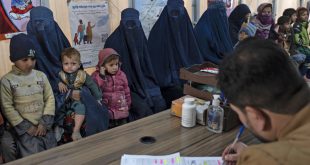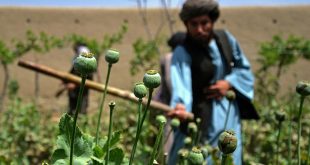KabuL: The Korean government has contributed a sum of $2.2 million to provide humanitarian relief to thousands of women and children displaced by severe droughts.
According to a statementthe contribution will protect 21,000 families, more than half are children, from the harsh winter season.
“Years of conflict, displacement and growing poverty, compounded by the unprecedented drought this year, have made the situation quite critical, especially for vulnerable families. This contribution could not have been more timely. With the onset of the winter the situation is quite dire,” says Adele Khodr, UNICEF Afghanistan Representative. “Thanks to the generous financial contribution from the People and Government of Republic of Korea, children and their families can be protected from the winter cold.”
Amidst the harshest conditions of the winter so far, UNICEF with the generous support of our donors, has delivered to an estimated 21,000 conflict and natural disaster affected families (58% being children) in the worst affected provinces of Herat, Badghis and Ghor, a package of essential non-food items including blankets, family kits including kitchen sets, tarpaulins and children winter clothing kits.
The Korean Ambassador RHEE Zha-hyoung said, “I am saddened by the fact that around 83,000 families across the country are in need of assistance to fight back cold and hunger during the harsh winter season. Children who are already suffering from malnutrition and weak immune systems are more vulnerable to cold winter weather, and I thank UNICEF for taking the lead in helping those children in a prompt and timely manner.”
The internally displaced children are in desperate need of assistance. Many continue to live in makeshift structures, tents and inadequate shelters that will expose them to sub-zero temperatures, heavy snow and strong winds.
Malnutrition rates remain high amongst displaced children. Of the over 19,000 children screened in the provincial Herat and Badghis IDP settlements, more than 1,300 were found to be severe acute malnutrition (SAM) cases and were referred for treatment at facilities in both provinces.
Over 3 million people including an estimated 1.6 million children are affected by the impact of drought across the country. The number of food insecure population is likely to increase to over 6 million people during the winter season.
With the significant drop in temperatures, there are reports of an increasing number of patients with acute respiratory tract infections, many of whom are children, and winter related deaths. UNICEF will continue to prioritize its winterization response. Despite our best efforts, more stills needs to be done and US$4 million is urgently required to meet immediate lifesaving needs of affected population. Without additional funding, UNICEF will not be able to support about a quarter of million drought-affected IDPs over half of whom are children.
 Afghanistan Times
Afghanistan Times



